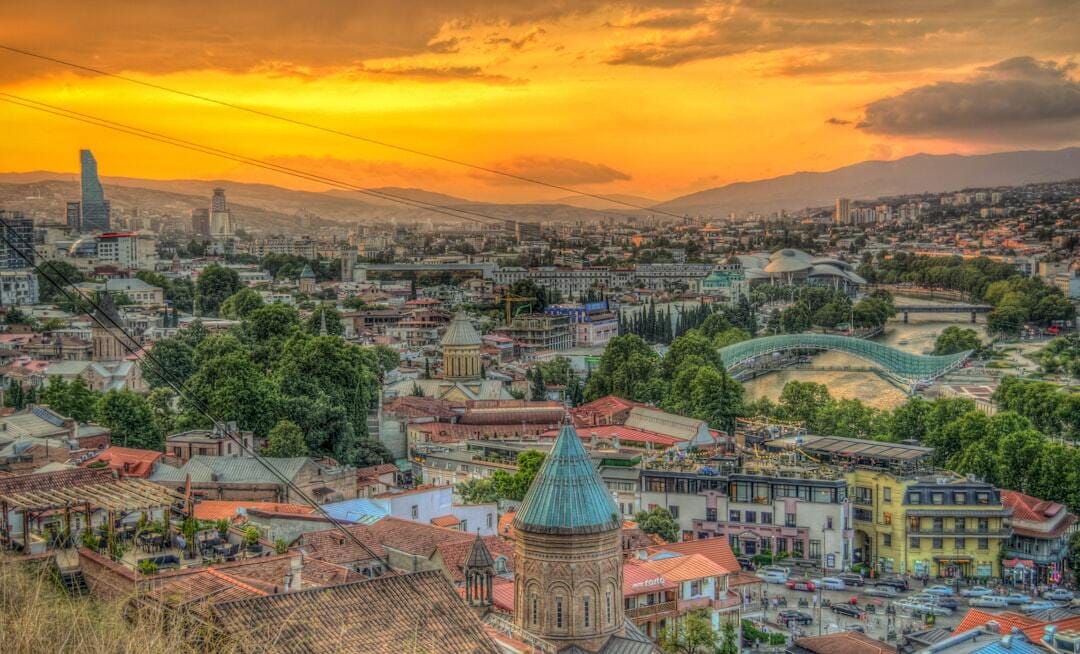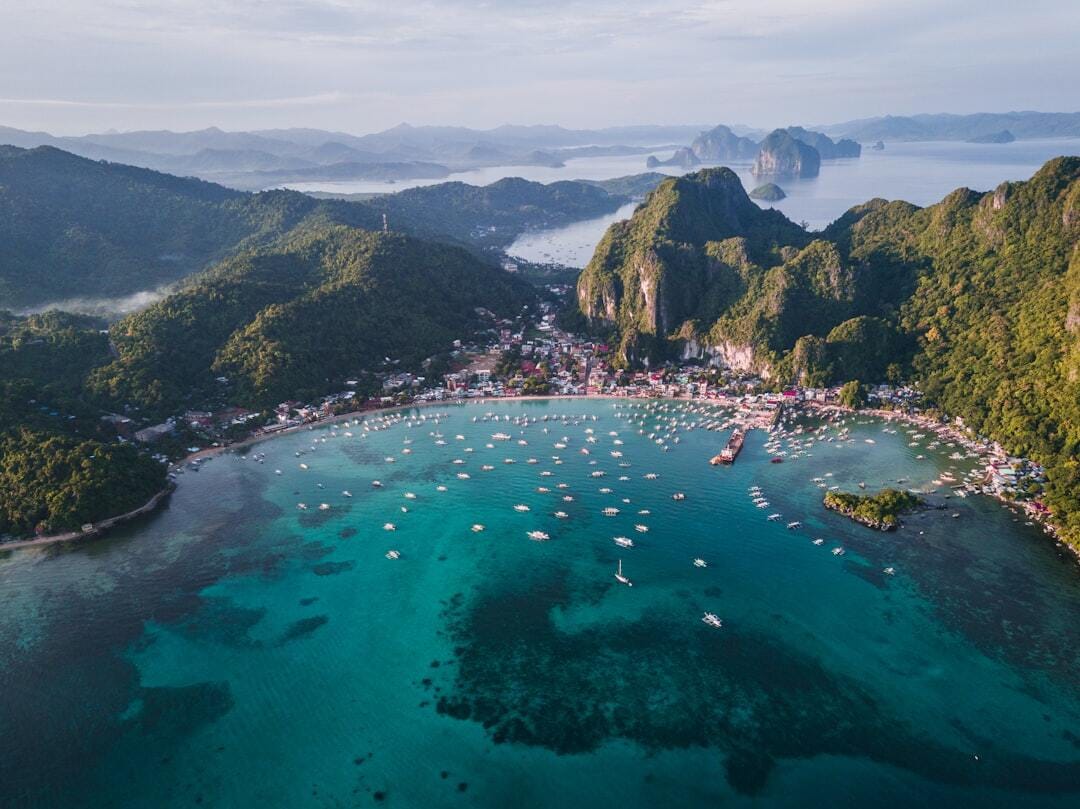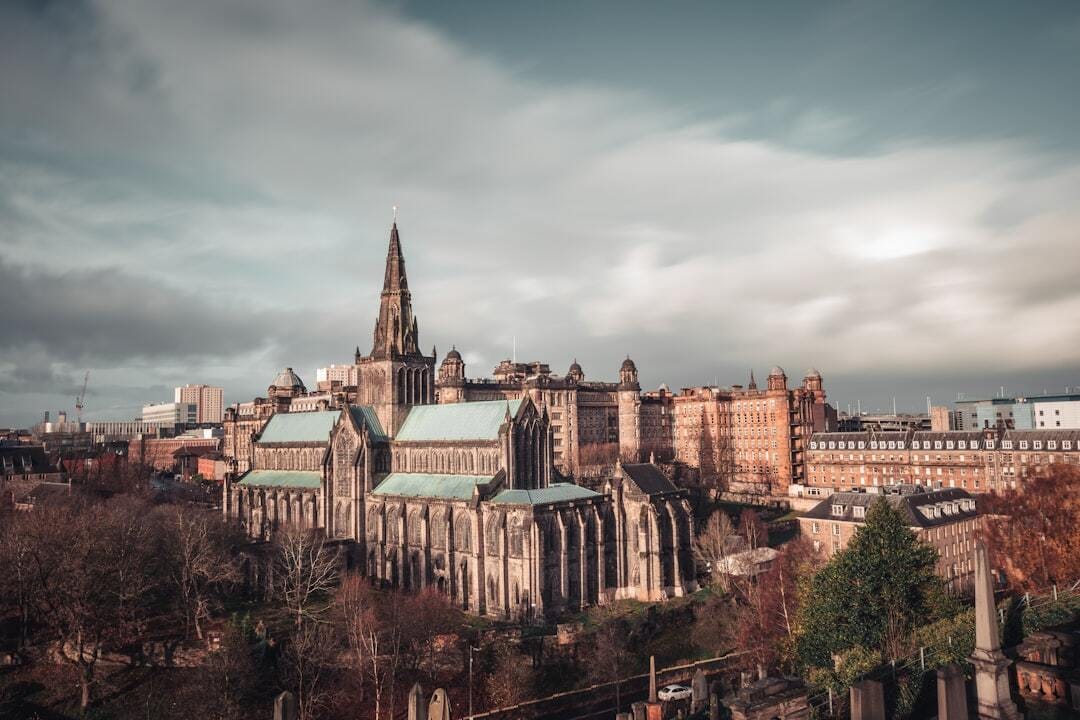In 2025, the most successful travel advisors are those who recognize emerging destinations before they become mainstream. These three locations represent the frontier of strategic recommendation-making: each offers extraordinary experiences in settings where your expertise as a travel advisor becomes truly invaluable. From the Caucasus gem gaining international recognition to Southeast Asia's most pristine islands and Scotland's cultural renaissance, these destinations will position you as the forward-thinking advisor who discovers destinations before your competitors catch on.
Georgia: The Caucasus Awakening
Why Recommend to Clients
When clients mention Turkey, Armenia, or Central Asia, position Georgia as the Caucasus's most sophisticated and accessible gateway. This emerging destination offers everything adventurous clients seek—dramatic mountain scenery, ancient monasteries, world-class wine regions, and authentic culture—combined with warm hospitality and exceptional value. Georgia provides the perfect balance of adventure and comfort, cultural immersion and modern infrastructure. As tourism grows, early-booking clients benefit from authentic experiences before the destination becomes saturated with tour groups.
When to Visit
Best Time: May - October for warm weather and clear mountain views
Peak Season: June - August (warmest, best for hiking and mountain activities)
Shoulder Season: May and September - October (pleasant weather, fewer crowds, excellent value)
Avoid: November - March (cold, snowy in the mountains, some passes closed, limited infrastructure)
Top Attractions
Tbilisi Old Town - Historic quarter with sulfur baths, ancient churches, and vibrant street life
Kazbegi Mountains - Dramatic alpine scenery with the ancient Tsminda Sameba monastery perched on cliffs
Gelati Monastery - UNESCO World Heritage site showcasing Georgian architectural mastery
Sighnaghi - Charming wine region town overlooking Alazani Valley with traditional charm
Gergeti Trinity Church - An Iconic mountain monastery accessible by hiking or horseback
Black Sea Coast - Batumi's beaches and subtropical climate contrast with the mountain regions
Where to Stay
Budget: Envoy Hostel (€15-25/night) - Social hostel in Tbilisi with rooftop bar and local atmosphere
Mid-Range: Rooms Hotel (€70-100/night) - Contemporary design hotel in Tbilisi's Vake districtLuxury: Château Aleksaniemi (€150-250/night) - Luxury wine resort in Sighnaghi with vineyard views
Food to Try
Khachapuri - Cheese-filled bread, Georgia's national comfort food with many regional variations
Khinkali - Meat-filled dumplings, Georgian culinary staple
Georgian wine - Ancient winemaking tradition using traditional clay vessels (qvevri)
Pkhali - Vegetable pâtés served as traditional appetizers
Adjarian khachapuri - Boat-shaped bread with cheese and egg, Black Sea specialty
Kharcho - Spiced beef soup, warming mountain cuisine
What to Avoid
Expecting extensive English proficiency outside tourist areas (basic Georgian phrases appreciated)
Missing wine country experiences (Kakheti and Kartli regions are essential for wine enthusiasts)
Underestimating mountain logistics (weather changes rapidly, proper footwear is essential)
Limiting stay to Tbilisi only (mountain monasteries and wine regions are highlights)
Visiting without understanding the Soviet history context (crucial for understanding modern Georgia)
Palawan, Philippines: The Last Tropical Paradise
Why Recommend to Clients
When clients consider typical Southeast Asian beach destinations like Bali or Thailand, they position Palawan as the region's most pristine and least developed island paradise. This Philippine gem offers untouched natural beauty with world-class diving, hidden lagoon adventures, and authentic Filipino hospitality—all at exceptional value compared to overcrowded regional alternatives. Palawan provides the perfect destination for clients seeking tropical authenticity before mass tourism transforms the landscape.
When to Visit
Best Time: November - May for dry weather and calm seas
Peak Season: December - February (coolest, driest weather, best visibility for diving)
Hot Season: March - May (hot but dry, excellent for beaches, fewer international tourists)
Avoid: June - October (rainy season, typhoon risk, rough seas affecting island transfers)
Top Attractions
El Nido Lagoons - Four stunning limestone lagoons accessible by day tours
Underground River - Puerto Princesa's UNESCO World Heritage underground river system
Coron Island - WWII shipwrecks for diving and snorkeling, dramatic limestone formations
Nacpan Beach - Pristine long beach, largely undeveloped, perfect for solitude
Bacuit Archipelago - Island-hopping opportunities with white sand beaches and clear waters
Twin Beach - Secluded beach accessible by hiking through the jungle, an ultimate off-grid experience
Where to Stay
Budget: Daracotan Island Resort (€30-50/night) - Budget beachfront bungalows with an authentic island atmosphere
Mid-Range: Malapacao Island Resort (€80-130/night) - Comfortable island resort with lagoon access
Luxury: Lagen Island Resort (€400-700/night) - All-inclusive luxury island resort with gourmet dining
Food to Try
Kinilaw - Fresh fish cured in vinegar and citrus, Philippine ceviche
Grilled grouper - Fresh daily catch prepared simply and excellently
Inihaw na liempo - Grilled pork belly with banana leaves, Filipino barbecue
Adobo - Stewed meat in vinegar and garlic, Filipino comfort food
Sinigang - Tamarind-based stew with vegetables and pork
Fresh tropical fruits - Mangoes, papayas, and local specialties at morning markets
What to Avoid
Visiting during typhoon season, June - October, brings weather risk and rough seas.
Missing island-hopping tours (essential for experiencing multiple lagoons and beaches)
Expecting extensive English outside resort areas (Filipino spoken, but tourism staff helpful)
Staying only in El Nido (Coron and Puerto Princesa offer different, equally spectacular experiences)
Underestimating travel times between islands (boat transfers can be lengthy, plan buffer time)
Glasgow, Scotland: The Cultural Renaissance City
Why Recommend to Clients
When clients mention Scotland, they position Glasgow as the country's most authentic and underrated urban experience. While Edinburgh dominates Scotland's tourism, Glasgow offers world-class museums, a thriving arts scene, innovative restaurants, and genuine local culture at a better value. This reinvented industrial city provides sophisticated experiences with authentic Scottish character—perfect for culturally curious clients seeking urban exploration beyond typical tourist paths. Glasgow's emergence as a cultural powerhouse makes it an ideal advisor recommendation for discerning travelers.
When to Visit
Best Time: May - September for warmest weather and longest daylight
Peak Season: June - August (warmest temperatures, outdoor festivals, white nights)
Shoulder Season: May and September (pleasant weather, fewer crowds, excellent value)
Cultural Season: October - November (arts festivals, theater season, autumn colors)
Avoid: November - February (cold, short days, though December Christmas markets are charming)
Top Attractions
Kelvingrove Art Gallery and Museum - One of the UK's finest art museums in a beautiful Victorian building
Glasgow School of Art - Charles Rennie Mackintosh masterpiece, architectural landmark
Riverside Museum - Innovative transport museum in striking architecture on the River Clyde
Necropolis Cemetery - Victorian Gothic cemetery with panoramic city views
Barras Market - Authentic Glasgow street market with local vendors and street food
Pollok House - Historic estate with a country house museum and beautiful grounds
Where to Stay
Budget: Citizen M Glasgow (€70-100/night) - Modern budget hotel with excellent location and local character
Mid-Range: Blythswood Square Hotel (€120-180/night) - Historic Victorian townhouse hotel in city center
Luxury: One Devonshire Gardens (€200-350/night) - Five-star boutique luxury in elegant Victorian terraces
Food to Try
Cullen skink - Scottish smoked haddock soup, warming comfort food
Scottish salmon - Fresh, beautifully prepared in innovative restaurants
Haggis - Traditional Scottish dish, far better than its reputation suggests
Scottish whisky - Multiple distilleries with tastings and education
Shortbread - Traditional Scottish butter biscuit, perfect gift and treat
Fish and chips - Glasgow's street food tradition, excellent quality throughout the city
What to Avoid
Expecting Edinburgh-level tourist infrastructure (Glasgow is more authentic, less polished)
Missing the Merchant City neighborhood (trendy district with excellent restaurants and galleries)
Underestimating Glasgow's cultural calendar (festivals and events are crucial to experience)
Limiting exploration to the city center (neighborhoods like Southside offer authentic local experiences)
Ignoring Scottish accent and dialect (locals’ friendly but distinctive accent takes adjustment)
Positioning Yourself as the Discovery Expert
These three destinations represent travel advisory expertise at its most forward-thinking: recognizing emerging opportunities before they become mainstream, matching clients with authentic experiences while infrastructure remains excellent, and positioning yourself as the advisor who discovers destinations before competitors catch on.
Strategic advantages for your practice:
Georgia establishes expertise in emerging Caucasus destinations with exceptional value
Palawan demonstrates knowledge of pristine Southeast Asian alternatives to overcrowded islands
Glasgow showcases an understanding of authentic urban experiences beyond obvious tourist capitals
Client satisfaction drivers:
Early access to destinations before mass tourism transforms the experience
Authentic cultural immersion is impossible in over-touristed alternatives
Exceptional value compared to similar destinations that have already become mainstream
Stories and experiences that position clients as sophisticated, discovery-minded travelers
Professional positioning benefits:
Establishes you as the advisor with a finger on the pulse of emerging destinations
Creates competitive advantage through early expertise in trending locations
Builds client loyalty through access to authentic experiences before they become expensive
Demonstrates knowledge that transcends typical guidebooks and tourist resources
Begin incorporating these emerging destinations into client conversations immediately. Each represents an opportunity to demonstrate forward-thinking expertise—the difference between recommending yesterday's trends and discovering tomorrow's must-visit locations. When clients return from Georgia's monasteries, Palawan's lagoons, or Glasgow's artistic revival, they'll understand why professional travel advisors remain essential in navigating our rapidly evolving world of travel possibilities.









